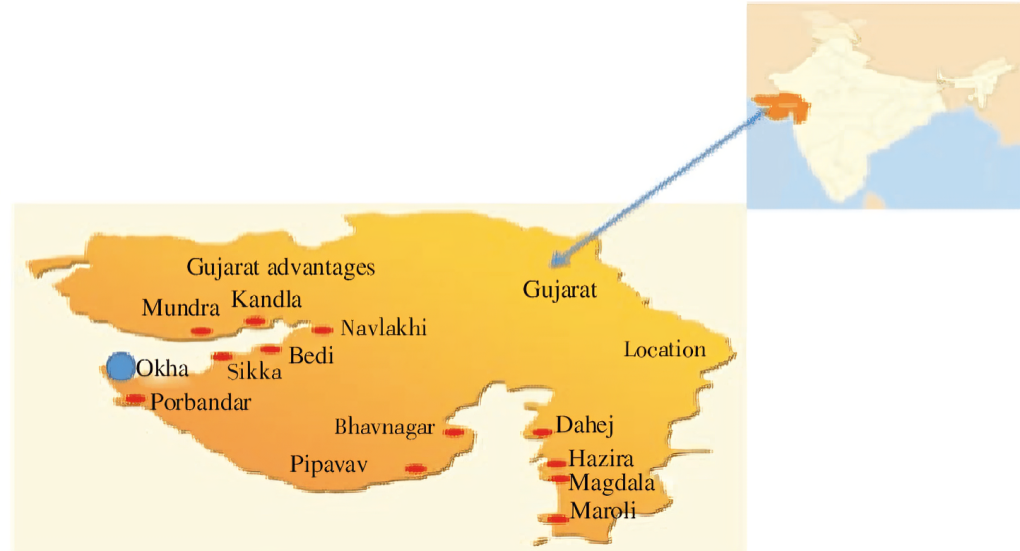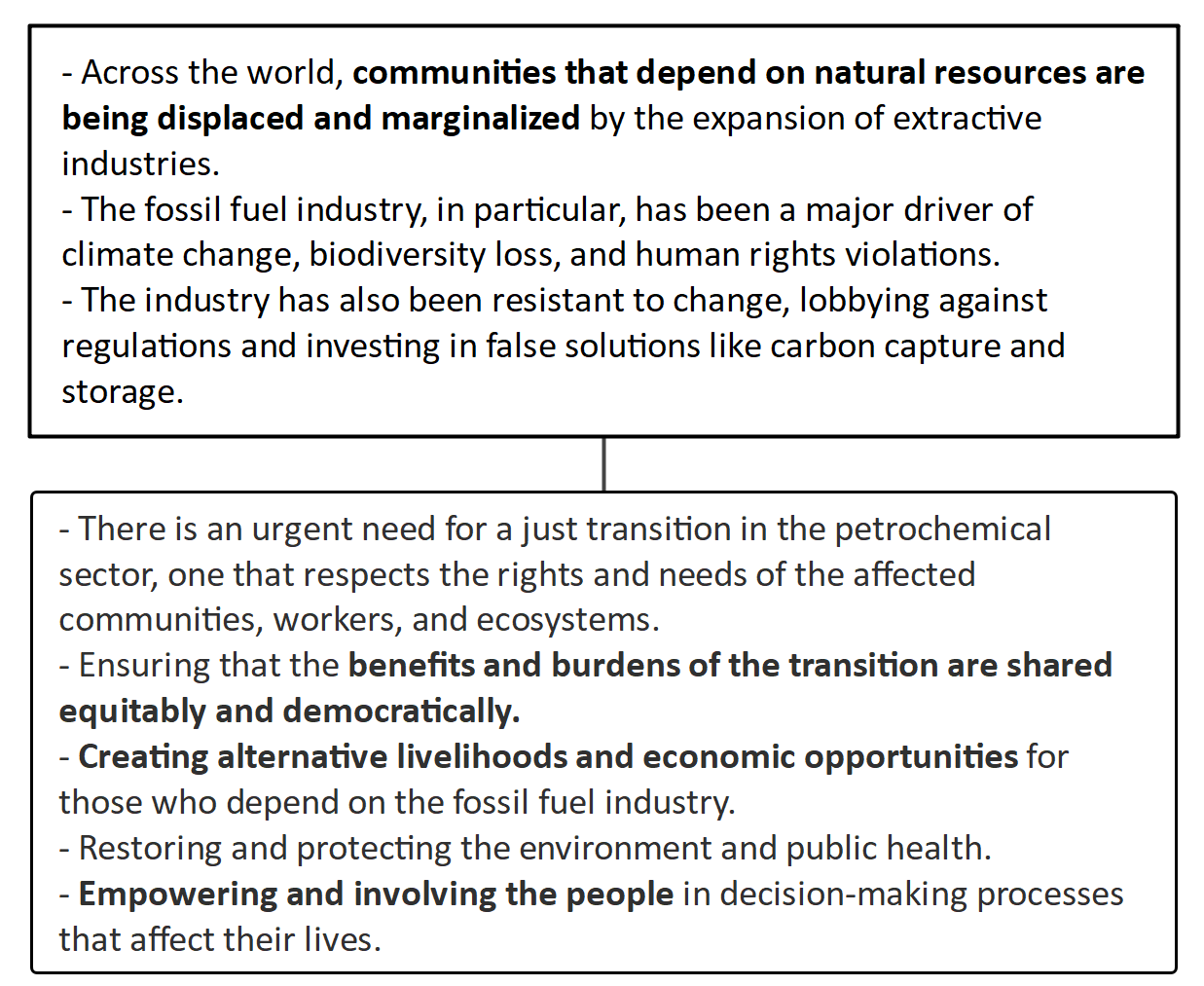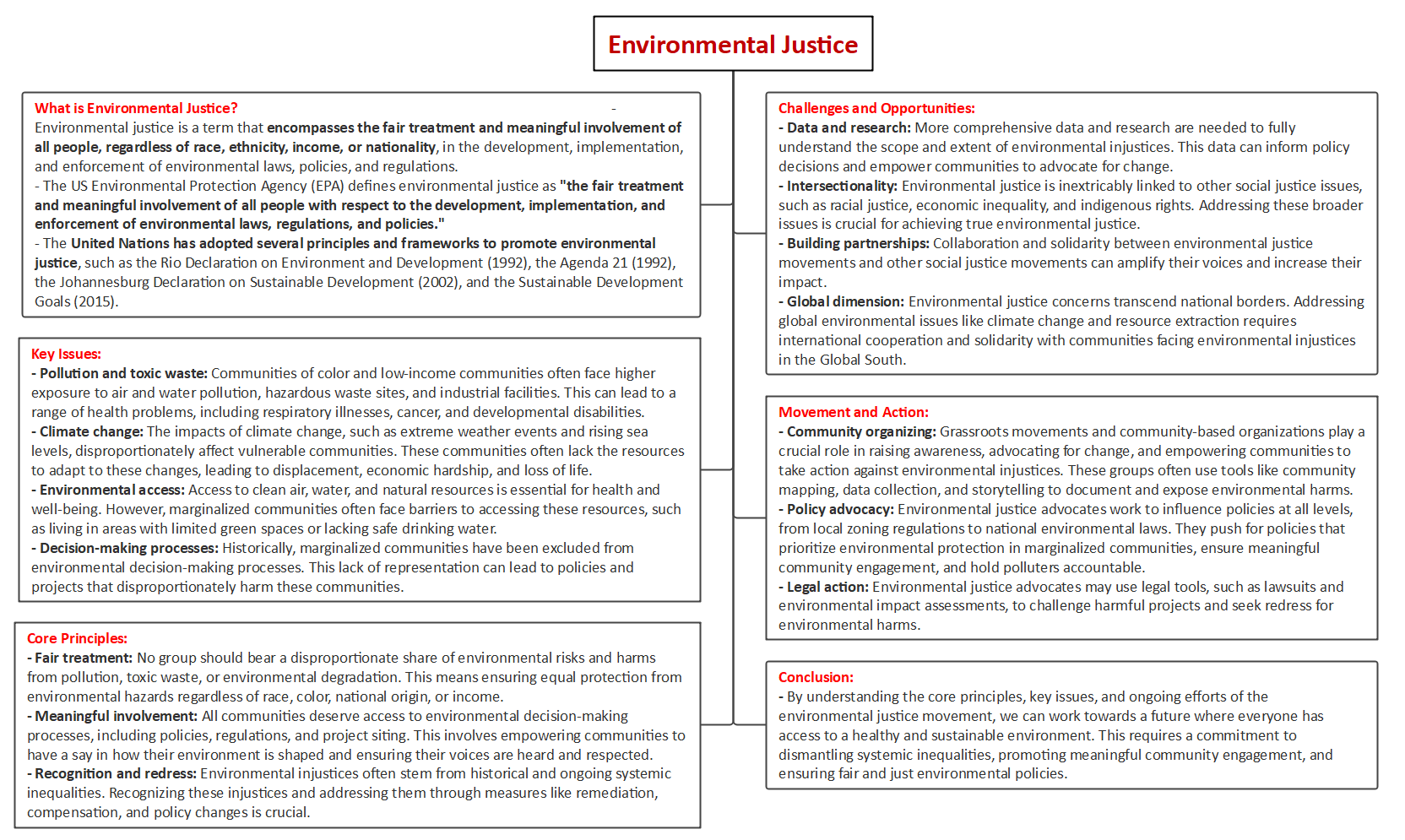Description

Copyright infringement not intended
Picture Courtesy: www.researchgate.net
Context: The impact of industrialization on the fishing communities of Dahej and nearby villages in Gujarat is a story of environmental injustice and social marginalization.
Details
- Dahej, a port town in Gujarat, is home to one of the largest petrochemical complexes in Asia. The sprawling industrial zone houses over 200 companies. The zone generates billions of dollars in revenue and provides employment to thousands of people. But behind the glittering facade of Dahej lies a grim reality: the environmental and social costs of its rapid industrialization.
- The local fisherfolk, who have lived in harmony with the sea for generations, are now facing a bleak future. Their livelihoods have been destroyed by the pollution and degradation of the marine ecosystem. Their lands have been acquired by the industries, often without fair compensation or consent. Their health has been affected by the exposure to toxic chemicals and waste. Their culture and identity have been eroded by the loss of their traditional way of life.

A just transition in Dahej would require a comprehensive and participatory approach:
- Conducting a thorough environmental and social impact assessment of the existing and proposed industrial projects in Dahej, with the involvement of independent experts and local stakeholders.
- Implementing strict environmental standards and monitoring mechanisms to prevent and reduce pollution and waste from the petrochemical industries.
- Providing adequate compensation and rehabilitation to the fisherfolk who have lost their lands, livelihoods, and health due to industrialization.
- Supporting the fisherfolk to diversify their income sources and skills, such as through aquaculture, organic farming, eco-tourism, or artisanal crafts.
- Promoting community-based management and conservation of coastal and marine resources, such as through marine protected areas, mangrove restoration, or sustainable fishing practices.
- Enhancing the access and quality of basic services and infrastructure for the fisherfolk, such as education, health care, water supply, sanitation, electricity, roads, etc.
- Strengthening the collective voice and representation of the fisherfolk in local governance bodies and platforms, such as panchayats, cooperatives, unions, or federations.
- Advocating for a national and global policy framework that supports a just transition in the petrochemical sector, such as by phasing out subsidies and incentives for fossil fuels, imposing carbon taxes or fees on polluters, increasing public investment in renewable energy and energy efficiency, creating green jobs and social protection schemes for workers, etc.
.jpg)
Environmental Justice
- Environmental justice refers to the equitable and participatory distribution of environmental benefits and burdens among all segments of society, regardless of their social, economic, or cultural backgrounds. It also implies that all people have the right and opportunity to influence the environmental decisions that affect their lives and well-being.
- Environmental justice is a key component of sustainable development, as recognized by various international instruments and initiatives, such as the Rio Declaration on Environment and Development (1992), the Agenda 21 (1992), the Johannesburg Declaration on Sustainable Development (2002), and the Sustainable Development Goals (2015). These documents affirm the principles of environmental justice, such as the right to a healthy environment, the precautionary principle, the polluter pays principle, the principle of common but differentiated responsibilities, and the principle of public participation.
Core Principles
- Environmental justice is a concept that encompasses three core principles: fair treatment, meaningful involvement, and recognition and redress.
- Fair treatment means that no group of people should suffer more than others from the negative impacts of environmental problems, such as pollution, toxic waste, or climate change. These problems affect people's health, well-being, and quality of life, and they should not be distributed unevenly based on race, colour, national origin, or income.
- Meaningful involvement means that all communities should have the opportunity and the power to participate in environmental decision-making processes that affect them. These processes include policies, regulations, and project siting that shape the environment in which people live, work, and play. Communities should have access to information, resources, and platforms to express their views and concerns, and their voices should be listened to and valued.
- Recognition and redress mean that environmental injustices are often rooted in historical and ongoing systemic inequalities that marginalize certain groups of people and deprive them of their rights and opportunities. These injustices need to be acknowledged and addressed through actions such as remediation, compensation, and policy changes that aim to restore justice and dignity to the affected communities.

Conclusion
- Addressing the challenges in Dahej requires a multifaceted and collaborative effort involving various stakeholders. The goal should be to achieve a balance between economic development and environmental and social well-being, ensuring that no community is left behind in the pursuit of progress.
|
PRACTICE QUESTION
Q. How can a framework of climate justice address the disparities in the impacts of climate change on vulnerable communities worldwide while holding accountable those historically responsible for environmental degradation and greenhouse gas emissions?
|







.jpg)






